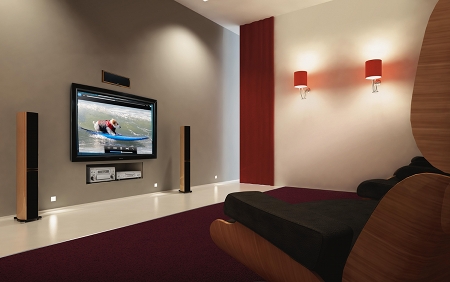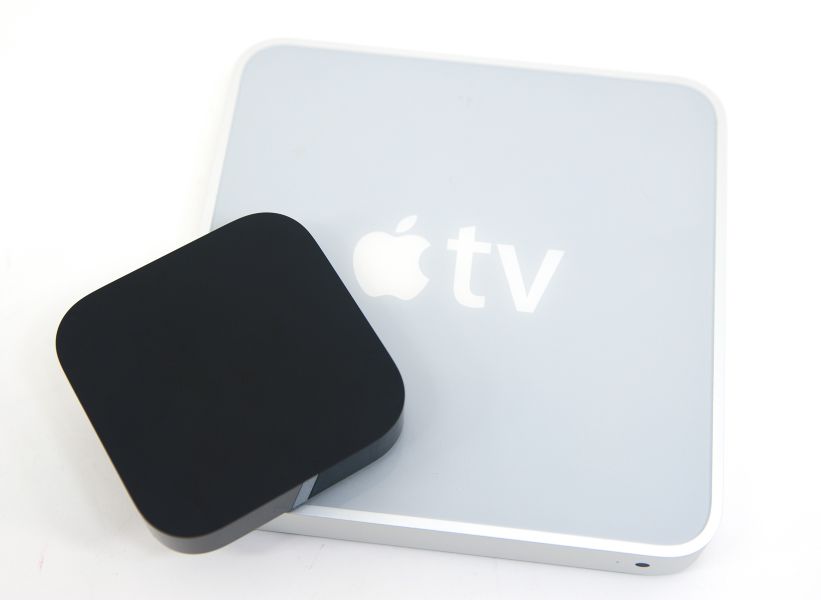Yesterday, news broke that chip giant Intel, frustrated with “everyone doing a half-assed Google TV”, is prepping its own set-top box and cable service for an introduction at the CES show, which runs January 8-11 (iDB will be there!). The report noted Intel “has a plan to overcome licensing hurdles” by rolling out the TV service gradually, on a city-by-city basis.
Today, The Wall Street Journal throws its proverbial credibility behind the rumor, but also explains that Intel, just like Apple, has found that Hollywood is proving to be a much tougher nut to crack…
Authors Don Clark and Christopher Stewart explained in their Journal report that Intel’s effort is taking longer than expected, “in part due to delays in reaching content agreements” with media companies.
Intel’s set-top box may include speech recognition and face analysis and combine social features, but it won’t launch at CES as Intel had reportedly told media companies it hoped to launch a service by the end of 2012.
Forbes points to a media release by Intel acknowledging the company will hold a press event at CES. “A spokesperson has clarified that the company will not be announcing anything related to this product or holding any public demos”, wrote the publication.“The timing now seems uncertain”, the report adds.
Blame it on those stubborn Hollywood executives who refuse to license their premium programming to Silicon Valley giants out of fear of alienating its traditional allies, cable networks.
Intel has pitched media companies on a plan to create a “virtual cable operator,” which would offer U.S. TV channels nationwide over the Internet in a bundle similar to subscriptions sold by cable- and satellite-TV operators, people familiar with the effort said previously.
One unnamed TV exec told the paper he didn’t want to be among the first to negotiate a deal with Intel “for fear of disrupting his relationship with existing distributors”, especially considering “Intel wanted to offer channels outside of that conventional pay TV bundle”.
That’s the same argument we’ve heard many times over in regard to Apple’s rumored television set thought to include an iTunes TV service that watchers say should offer viewers the ability to subscribe to any channel they want.
Intel has apparently reached at least one content deal. Persuading other studios to license individual channels “would require far higher fees than the companies currently receive”, per one exec who said his company is “far from reaching an agreement” with Intel on financial terms.
Content owners typically typically license channels in bundles. Who knows, maybe these media companies are using Intel negotiations as a leverage in talks with Apple. After all, Apple has more than $120 billion in the bank and could easily use some of its cash hoard to agree to those expensive licensing deals.
http://www.youtube.com/watch?v=IAV-Kkq-GtY
While Intel certainly has the technological know-how with servers and its chips in set-top boxes (the original Apple TV had an Intel CPU), the main problem TV industry faces today is user experience, not the content side of the business.
According to an NPD survey, people are mostly unimpressed by so-called Smart TVs and rarely use apps and other advanced functions due to complicated user interfaces.
To put it bluntly, research found that very few Smart TV owners are using their sets to do more than watch OTT (over the top) video. Plus, the extra apps just create a complex user experience.
Companies like Samsung who continue invest heavily in the Smart TV platform won’t like the findings, but that’s where we stand today. Samsung has been teasing its new TV launch at CES that has “an unprecedented new shape”.
I’ve heard from several high-ranked industry sources that big-name TV players are actually eager to see Apple enter the space and re-think what the television user experience should be as that would give the entire industry a much-needed kick in its ass and, hopefully, ignite interest in advanced TV sets that connect to the web and run apps.
Make sense, no?


